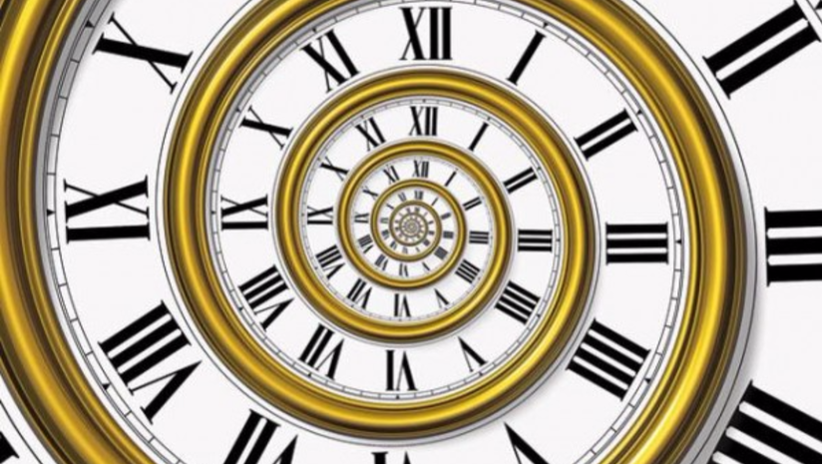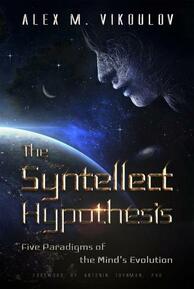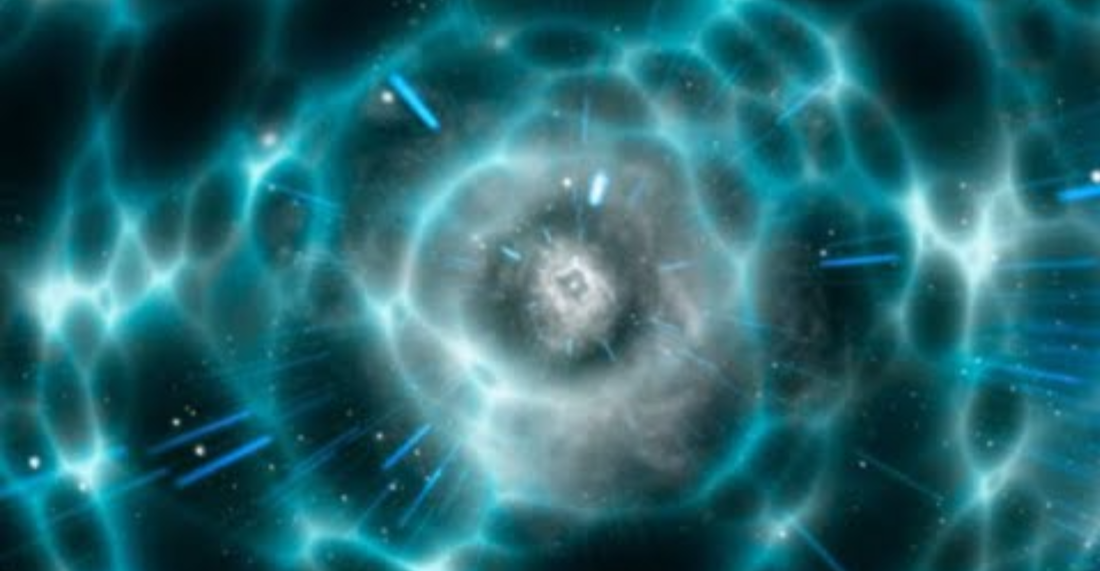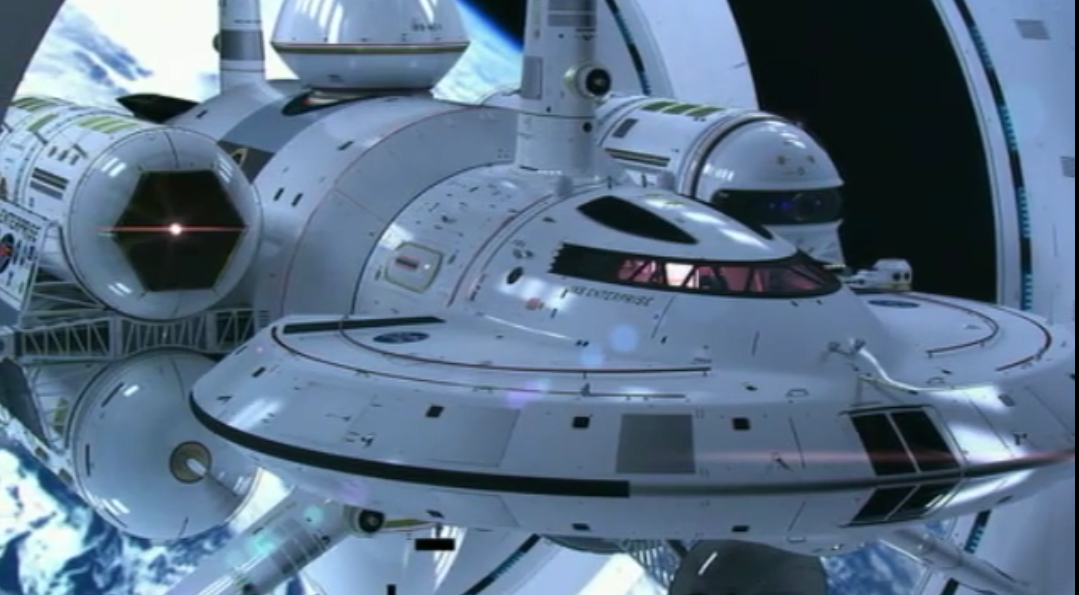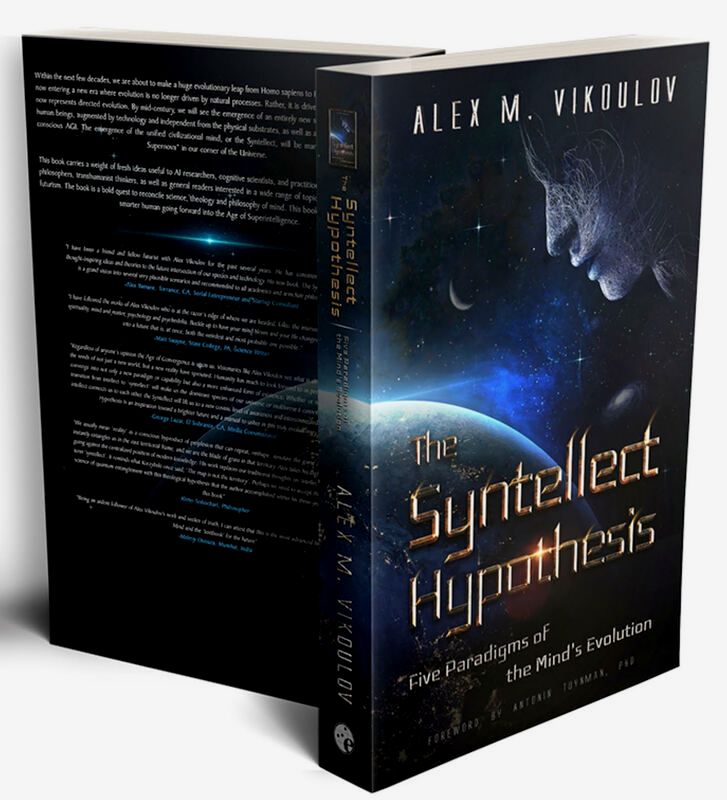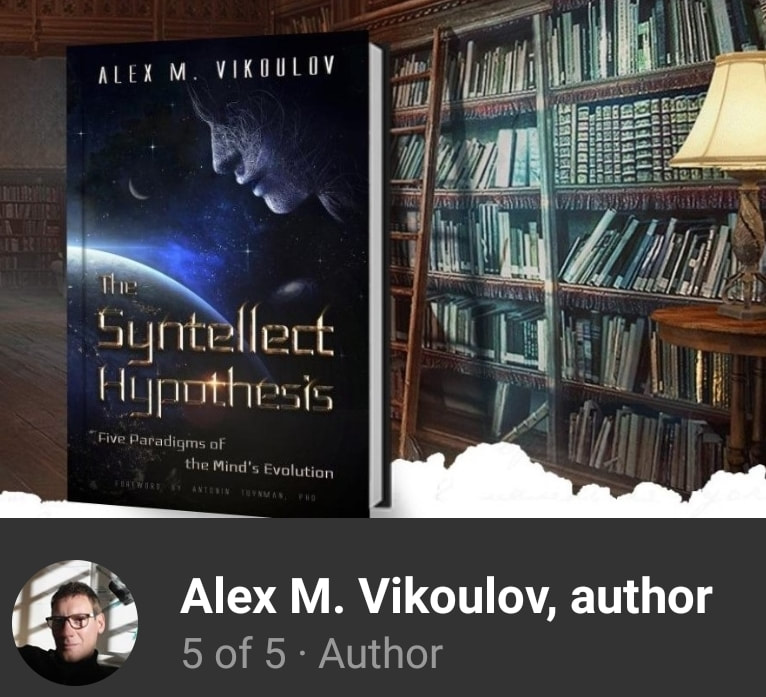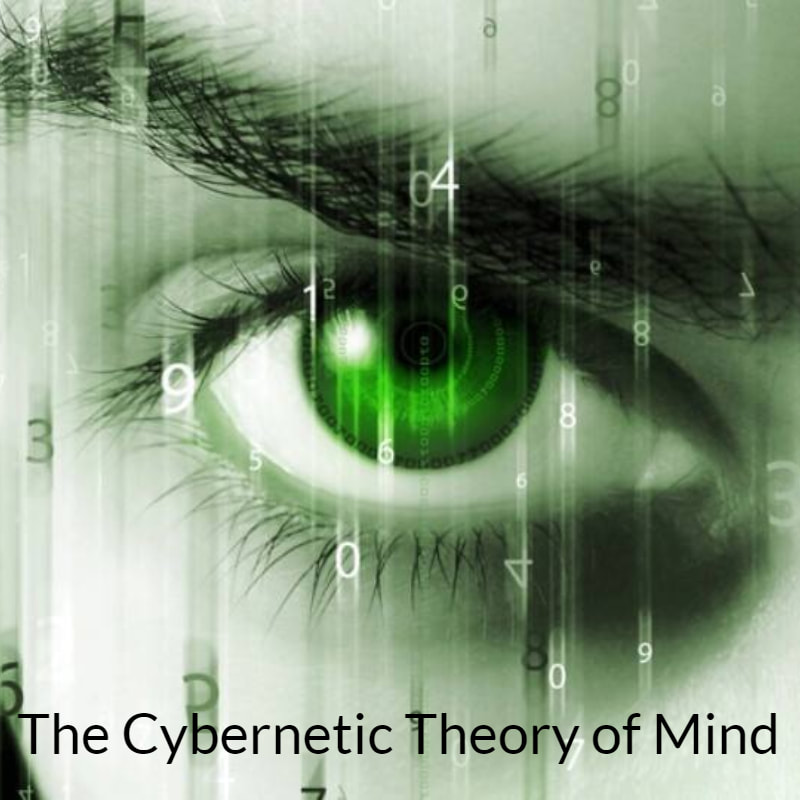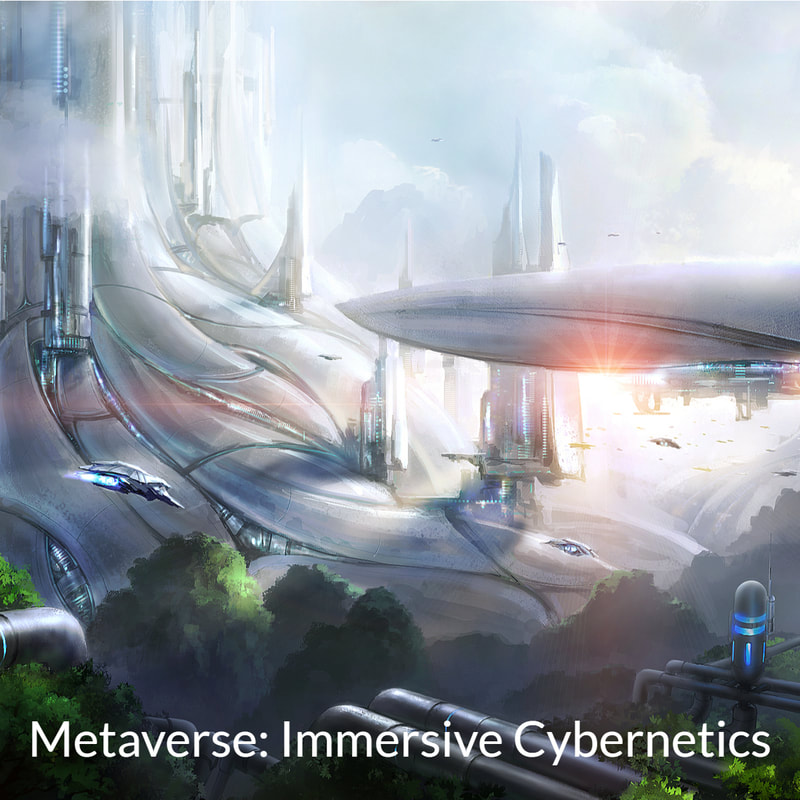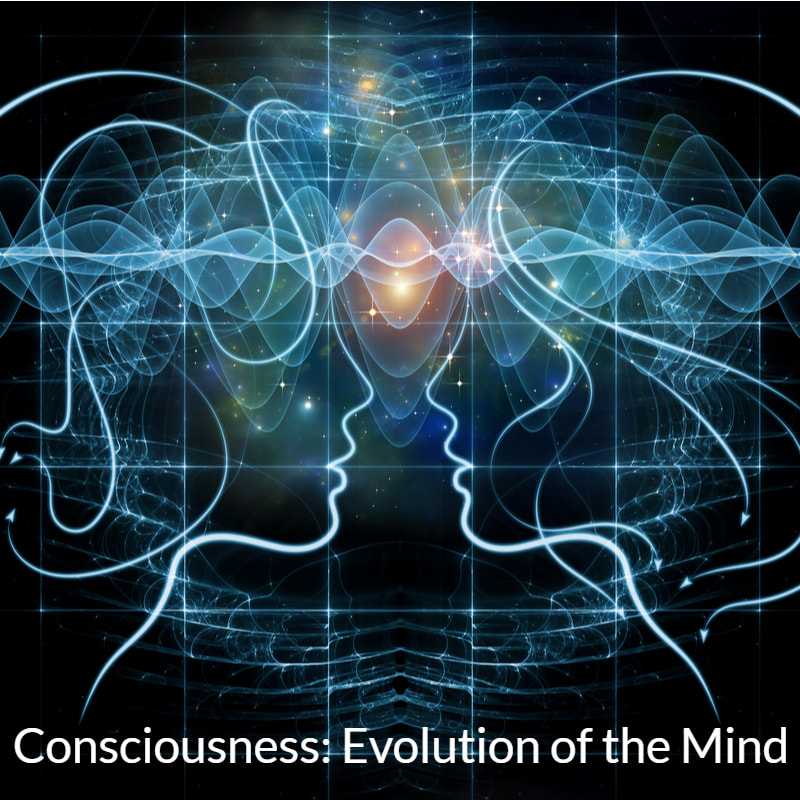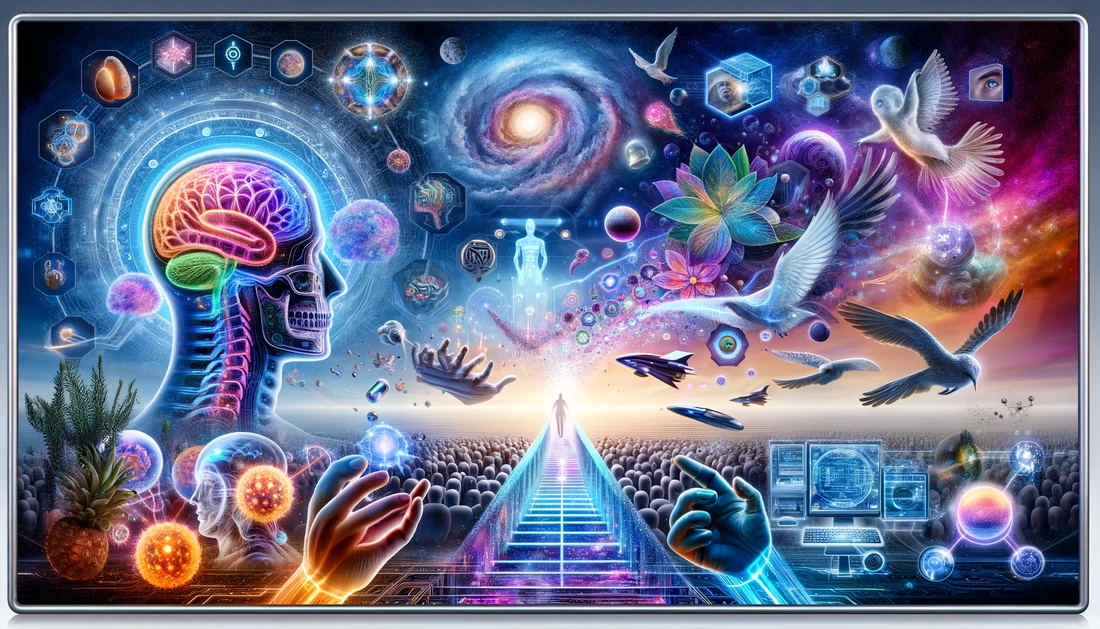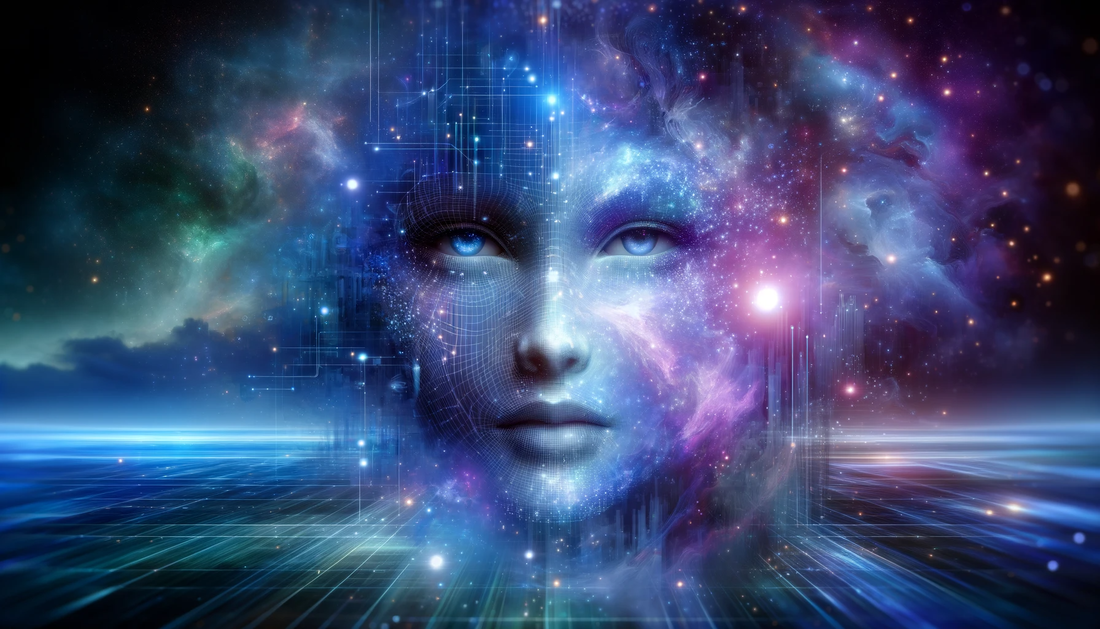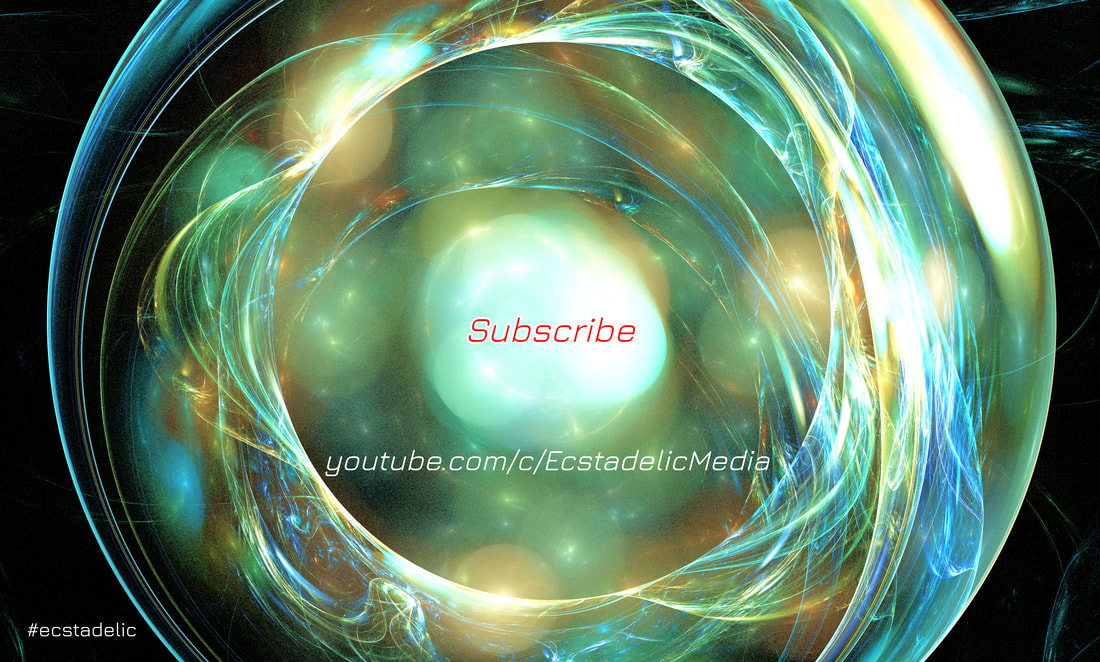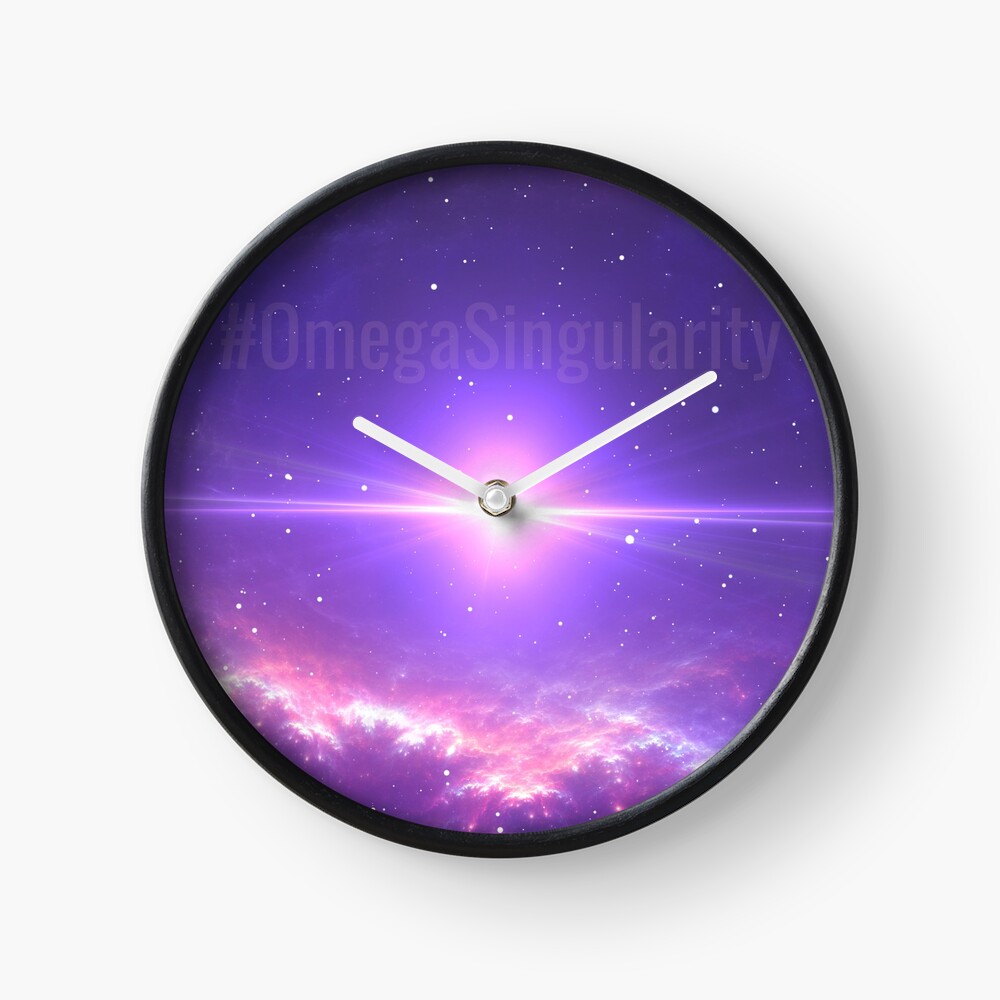|
by Alex Vikoulov "I myself believe that there will one day be time travel because when we find that something isn't forbidden by the over-arching laws of physics we usually eventually find a technological way of doing it." -David Deutsch Time travel may still be in the realm of science fiction, inspiring the plots of countless books, movies and Star Trek episodes, but not out of the realm of possibility. While basic physics allows for the possibility of moving through time, certain practical concerns and paradoxes seem to stand in the way. The "Fractal Soliton of Improbability," postulating that any moment is unique and only happens once in the lifetime of a universe, or "Grandfather Paradox," in which a traveler jumps back in time, kills his grandfather and therefore prevents his own existence, are the most salient paradoxes arising in relation to time travel. On the other hand, Digital Physics makes time travel both theoretically possible and creatively irresistible. PART I. THEORETICAL POSSIBILITIES OF TIME TRAVEL Contrary to what many people think, time travel is possible. We travel in time "all the time" and do it automatically -- you traveled few seconds into the future since you started reading this sentence. What we really mean by time travel is the concept of movement between certain points in time, analogous to movement between different points in space, typically using a hypothetical device known as a time machine, in the form of a vehicle or of a portal connecting distant points in time. So first, let's examine existing time travel theoretical possibilities and related concepts: PARALLEL UNIVERSES WITH ALTERNATE TIMELINES The existence of parallel universes is no longer a science fiction but a science fact thanks to weirdness of quantum mechanics. According to Richard Feynman’s Sum Over Histories Interpretation which are widely accepted among physicists, particles such as electrons travel along all possible paths from beginning to ending points, and the world has a full spectrum of possible histories, each eternally present, however not perceptible to us. As quantum theory shows, parallel universes do exist, each with their own configurations of particles and fields with alternate timelines but beyond our current ability to directly observe them. In order to eliminate temporal paradoxes Nature would either make travel to the past impossible, or avert the paradoxes via some other preventive mechanism, or offer an elegant solution such as parallel universes with alternate timelines. Ultimately, as we'll see further, Nature always find a way for self-consistency. BLACK HOLES Described by Stephen Hawking as natural time machines, black holes could only be used to travel into the future. The idea would be not to go inside of them but rather to orbit around them. Black holes are so gravitationally massive and dense that they are not only distorting space around them but also time itself, slowing it down more than anything else in the Universe. As a matter of fact, if a spaceship was orbiting a black hole while another was floating in space a bit further, the crew in orbit to the black hole would age half less than those on board on the other ship. If these spacemen stay for 10 year in orbit around it, 20 years will have passed when they'd be back on Earth, therefore allowing them to experience what appears like the future for them, with no possible return.* Video: 7 Ways to Time Travel - Hybrid Librarian
COSMIC STRINGS AND LOOPS Cosmic strings and loops are hypothetical defects in the fabric of space-time, left over from the formation of the Universe. These odd structures are one-dimensional objects, meaning they have length, but no height nor width, and are suspected to have spread in large numbers throughout the Universe like thin cracks over a frozen lake. Also compared to imperfections within crystals, it is thought that two strings side by side would be so dense that they would have a dramatic impact on surrounding space-time, throwing a spaceship near them anywhere, anytime! These strings and loops might not be hypothetical any longer since the discovery of the "Twin Quasar" in 1979, which was revealed to be a double image of the same object claimed by scientists to be the result of the "gravitational lensing" of either of a galaxy or a cosmic string that passed between Earth and the quasar, causing it to be visible at two different time periods on the same image. ROTATING UNIVERSE In 1949, Einstein's friend and colleague, Kurt Gödel, one of the most brilliant mathematicians of the 20th century, introduced a new solution to Einstein's equations allowed for time travel which did not please his fellow. Gödel found that if the Universe was itself rotating, and a spaceship was traveling around it fast enough, it would go back in time and arrive before it left. In spite of being one of the most foolproof theoretical solutions to travel through time, it's also one of the less achievable as it might be an impossible challenge only to get out of the Milky Way, our galaxy and one of 100 billion of other galaxies in the observable Universe alone. We may in fact never know how enormous the Universe is, so getting out of it just sounds like an unrealistic project. WORMHOLES Predicted by Einstein's Theory of General Relativity but not yet observed, wormholes are tunnels in the Universe. These theoretical passages are not only creating shortcuts through space, but also through time. Scientists have already started to think about spaceships that would be able to generate wormholes but in order for these not to collapse such a spaceship would require something poorly understood - negative matter. Another issue would certainly be the obvious risks of a random trip through space and time which could very well lead the crew to a lost cosmic paradise or to an unstable time and place of' the Universe.* Image Credit: Wormhole, Envato Studio  "Abridged excerpt from "The Syntellect Hypothesis: Five Paradigms of the Mind's Evolution" by Alex M. Vikoulov, available now on amazon.com, audible.com, bn.com, and directly from EcstadelicNET webstore. TIPLER CYLINDER Another theoretically valid way to think about time travel is a concept invented by American physicist Frank J. Tipler, who stated that any object rotating around a hypothetical cylinder of infinite length would go backwards in time. NASA engineers have even thought of the cylinder as a way to host life during the endless journey around it. But the "Tipler time machine," though a viable solution for time travel, seems like a hardly practical method because the very notion of infinity means that it is out of reach of human perception and consequently unfeasible. WARP DRIVE Just like black holes and other gravitational objects like planets and stars distort space and time around them, the Alcubierre Drive is based on the idea that a spaceship manipulating negative energy could have a similar impact on space-time. NASA has already started to work on the model of real-life Star Trek-style spacecraft called IXS Enterprise, that would be able to use the Alcubierre Warp Drive and even it's designed to create shortcuts in space and not in time it will inherently do both at a time, and may then be the most advanced time machine to this day. The IXS Enterprise would be able to generate a warp bubble around it, stretching space-time in a wave on which the spacecraft could ride, with time ahead of it being contracted and time behind it being expanded. SURPASSING THE SPEED OF LIGHT Theoretically, you could travel back in time if you surpass the speed of light. At the quantum level, particles do that "all the time." During a faster-than-light travel, you would first experience time going slower and slower around as you would approach the speed of light until theoretically stopping time when reaching the speed of light, and finally going backwards in time as you would travel faster than light. If some astronauts made a round trip to the closest star system, Alpha Centauri, near the speed of light, 9 years would pass on Earth but to them the trip would only last few minutes and someone watching them coming back at that speed from Earth would see them arriving in slow motion. Yet it is considered that nothing can go faster than the 300,000 kilometers per second of light (186,000mi/sec) because it would require an infinite amount of energy. But recent studies have shed doubts about it, revealing a particle that might breach the holy laws of relativity. These particles, called 'tachyons', have not only been demonstrated to go faster than light, but also to have the mind-boggling characteristic of imaginary mass, meaning that they actually speed up as they lose energy. If confirmed, the discovery would prove that it is possible to move at infinite speed with no energy at all, and maybe change the way scientists think of time travel. PROBABILITY THAT YOU ARE YOURSELF A TIME TRAVELER FROM THE FUTURE Wait, what? You've read it right! There's a seemingly crazy idea floating around that if we live in a Matrix-like simulated reality, you may be the one actually playing this game of life in a simulated history, or going through some kind of training, or simply collecting experiences, via your avatar (your body and associated identity) in this simulation, like in a Star Trek holodeck program. Your memories and perception of "True Reality" may be suppressed for the duration of the simulation for 100%-realistic feed. PART II. THE FEASIBILITY OF TIME TRAVEL: IT'S ALL RELATIVE AND SUBJECTIVE Would you use a time machine once invented? What time periods would you visit? What if you could relive your most precious moments in life? Or travel 100 years in the future? If we sort out theoretical possibilities and pick the most plausible time travel solutions to the best of our current knowledge, we could end up with these three most viable ways of time travel: WARP SPACESHIPS Based on General Relativity Theory of Albert Einstein, which describes 4D space-time as the fabric of our Universe as well as the properties of the moving clocks, travel to the future can be done if a spaceship either approaches a gravitationally massive black hole or accelerates near the speed of light. In this case, when the crew of the spaceship returns back to Earth, they would see that time on Earth progressed faster than theirs. As mentioned before, a faster-than-light (FTL) warp spaceship equipped with the Alcubierre Warp Drive (or its variation) could be a "time machine" ready to be built.* Image Credit: IXS Enterprise, Mark Rademaker/Flickr  *Abridged excerpt from "The Syntellect Hypothesis: Five Paradigms of the Mind's Evolution" by Alex M. Vikoulov, available now on amazon.com, audible.com, bn.com, and directly from EcstadelicNET webstore. NASA engineer and physicist Harold White announced in 2013 that a warp ship such as the IXS Enterprise could allow for interstellar travel at faster-than-light warp speeds. White and his team at NASA's Eagleworks Labs have mathematically calculated a plausible way to accomplish this using far less energy than required by the original theory, which was proposed in 1994 by physicist Miguel Alcubierre.* White explains in great detail the science behind his concept in this presentation: 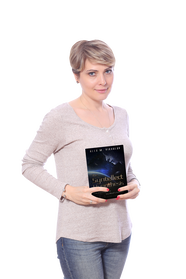 *Abridged excerpt from "The Syntellect Hypothesis: Five Paradigms of the Mind's Evolution" by Alex M. Vikoulov, available now on amazon.com, audible.com, bn.com, and directly from EcstadelicNET webstore. WORMHOLE PORTALS Travel to the past is also theoretically possible but to the best of our current understanding you would need a wormhole and ability to safely travel through it to your destination in the past. The Grandfather Paradox would be a non-issue because on every occurrence you travel through a wormhole portal to the past, you would find yourself in an alternate past or some other "twist of fate" would prevent the paradox. In 1989, Matt Visser published a paper showing the feasibility of traversable wormholes which could be constructed by confining "exotic matter" to narrow regions to form the edges of three-dimensional volume. The exotic nature of the edge material requires negative energy density and tension. But the laws of physics do not forbid such materials. A traversable wormhole can be thought of as the negative energy counterpart to a black hole, and so could be labeled a 'white hole'. In 2011, another notable paper was published by a team of researchers, Panagiota Kanti, Burkhard Kleihaus, Jutta Kunz, titled "Stable Lorentzian Wormholes in Dilatonic Einstein-Gauss-Bonnet Theory." The researchers claim that traversable wormholes may be constructed in our 4D spacetime dimensions, without needing any form of exotic matter. While determining their domain of existence, the research demonstrates the stability of these wormholes. Wormholes can be regarded as communication channels with enormous bandwidth. As Digital Physics suggests it would be much more economic to transmit an information pattern of an object down a channel rather than the object itself. It follows that "teleporting" a human would be feasible as well. Construction of such wormhole portals is, of course, far, far beyond our present-day abilities but ultimately achievable. Keep in mind, that even if you might be able to travel to the past, you cannot change history per se, because the history as you know it has already happened. However, if you opt to influence the course of an alternate history, say prevent some disastrous event from happening, your actions would result in an alternate timeline branching off with consequences known as the 'Butterfly Effect'. Actually, the very fact that you find yourself in the past would immediately start to alter the history and must be considered an alternate timeline. The famous question by Steven Hawking "If time travel (to the past) is possible, where are all the tourists from the future?" could have a fairly straightforward answer -- they are invisible because the femtosecond they land in the past would be a start of a new timeline imperceptible to the "original people". Any such moment of "landing" would contain an introduction of the new information -- a time traveler, and that would supposedly initiate a new alternate timeline which was non-existent until a certain point in the future, so any of the people of the original history would be completely unaware of it. Wrap your mind around this concept -- it's NOT circular logic! Using traversable wormholes could be a risky endeavor as one more issue pops up when you want to travel back to the point of origin, which I call 'The Sliders Effect'. Just like in the popular TV series "Sliders" and "Quantum Leap", characters always jump to a parallel earth, desperately trying to find way "home". The Sliders Effect would make your probability to return to the original timeline, or rather its closest approximation, infinitesimally small.* Watch this episode of "Through the Wormhole" with Morgan Freeman, "Is Time Travel Possible?" where the concept of wormholes and other time travel possibilities are explained: 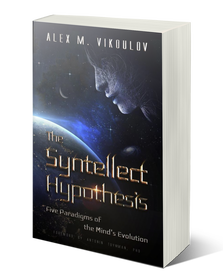 *Abridged excerpt from "The Syntellect Hypothesis: Five Paradigms of the Mind's Evolution" by Alex M. Vikoulov, available now on amazon.com, audible.com, bn.com, and directly from EcstadelicNET webstore. REAL VIRTUALITIES The most technologically viable way of time travel would arguably be artificially created simulated worlds, Virtual Reality, or I'd say real virtualities. Digital Physics sees everything as information and digital philosophers argue that any universe is virtual in nature which means this is as "real" as it gets. At some point, we'll be able to create simulations indistinguishable from our physical world with Artificial Intelligence-based VR programs, populated by conscious beings, sentient holograms, which go about their lives oblivious about their true essence. There may be numerous types of such ever-improving simulations but recreated human history, or its approximations, or modified timelines, or Jurassic Period trips, will most probably be the first "time machines" we invent. Imagine an alternate timeline where some calamitous event which hindered the intellectual progress in our timeline, has never happened there. What would have happened to the civilizational development, if the library of Alexandria had never been destroyed? Or, Hitler had never come to power in Germany and the world has, in fact, avoided Word War II altogether? Considering that time is an informational construct and the fact that we've come already near our own Technological Singularity, it's fair to assume that within an infinitely large bundle of alternate timelines, there's an alternate timeline or timelines where 2016 lies past the Technological Singularity. In other words, the Singularity has already happened on some parallel Earths. It follows that our reality well may be a simulation by the "post-singularitarians" who would like to see some modified history unfolding. A significant history variable might have been introduced, such as World War II to see how the civilization would persevere in its wake. As the social study shows, Hollywood movies cash out better on human heed to survival-related fears and instincts, so AI of the future may create the next level of entertainment in the form of simulations of human histories. Remember the movie "The 13th Floor"? The stories of tomorrow will be fully immersive. We'll increasingly share our stories and interact in Virtual Reality. The medium, the place where those stories will unfold, exists within our creative consciousness. VR will be a direct conduit to our creative selves which will allow us to turn our minds inside out and share our dreams and stories in real virtualities. Want to relive that mind-blowing spring break party with those adorable strangers? No problem! AI would retrieve your memories related to that experience, fill up any gaps, access and compile all available digital records on the Web, and recreate that for you in the form of a immersive VR experience. Want to be a 17-year old unruly John Malkovich? Here we go! In the future, when Internet-enabled contact lenses or bionic eyes record and digitize your every move and create archives of your own subjective history, it would be easier for you to travel back to any moment in your own history or share your experiences with the world. Some privacy, intimacy and multividuality issues may consequently arise which is beyond the scope of this essay but a good topic for another day.* Video: Le Matrix Ecstadelique - Ecstadelic Media (cc)  *Abridged excerpt from "The Syntellect Hypothesis: Five Paradigms of the Mind's Evolution" by Alex M. Vikoulov, available now on amazon.com, audible.com, bn.com, and directly from EcstadelicNET webstore. Real or virtual, Digital Physics makes no distinction -- everything boils down to information and consciousness, i.e., experiential reality, so you well may be that time traveler from the future, you just don't perceive that because you had set it up yourself that way before entering the simulation - the dream feels real while you are in it.* -Alex Vikoulov *That was an exclusive abridged excerpt from my new book "The Syntellect Hypothesis: Five Paradigms of the Mind's Evolution" available now on Amazon, Audible, from Barnes & Noble, and directly from EcstadelicNET webstore. WHAT EXACTLY IS TIME? Hint: it's not what it appears to be. Read more in my new book "The Syntellect Hypothesis: Five Paradigms of the Mind's Evolution." Tags: time travel, temporal mechanics, quantum mechanics, temporal paradoxes, Digital Physics, Quantum Physics, Fractal Soliton of Improbability, Grandfather Paradox, time machine, alternate timelines, parrallel universes, David Deutsch, Hugh Everett, Richard Feynman, Albert Einstein, Frank Tipler, Steven Hawking, Harold White, Eagleworks Labs, Matt Visser, Morgan Freeman, Terence McKenna, Malkovich, being John Malkovich, Spacevision, Spacex, many worlds interepretation, sum over histories, black holes, cosmic strings, cosmic loops, warp drive, Alcubierre warp drive, IXS Enterprise, Star Trek, Twin Quasar, Rotating Universe, General Relativity Theory, Tipler Cylinder, Tipler Time Machine, NASA, speed of light, tachyons, Alpha Centauri, time traveler, holodeck, the Butterfly Effect, Sliders Effect, wormhole portals, teleportation, Artificial Intelligence, Virtual Reality, real virtualities, Library of Alexandria, technological singularity, post-singularitarians, multividuality About the Author: Alex Vikoulov is a Russian-American futurist, evolutionary cyberneticist, philosopher of mind, CEO/Editor-in-Chief of Ecstadelic Media Group, painter, essayist, media commentator, author of "The Syntellect Hypothesis: Five Paradigms of the Mind's Evolution," "The Origins of Us: Evolutionary Emergence and The Omega Point Cosmology," "The Physics of Time: D-Theory of Time & Temporal Mechanics," "The Intelligence Supernova: Essays on Cybernetic Transhumanism, The Simulation Singularity & The Syntellect Emergence," "Theology of Digital Physics: Phenomenal Consciousness, The Cosmic Self & The Pantheistic Interpretation of Our Holographic Reality," "NOOGENESIS: Computational Biology," "TECHNOCULTURE: The Rise of Man." Self-described neo-transcendentalist, cosmist, transhumanist singularitarian. Currently lives in Burlingame, California (San Francisco Bay Area). More Bio... Author Website: www.alexvikoulov.com e-mail: [email protected]
0 Comments
Leave a Reply. |
Categories
All
Recent Publications The Cybernetic Theory of Mind by Alex M. Vikoulov (2022): eBook Series The Syntellect Hypothesis: Five Paradigms of the Mind's Evolution by Alex M. Vikoulov (2020): eBook Paperback Hardcover Audiobook The Omega Singularity: Universal Mind & The Fractal Multiverse by Alex M. Vikoulov (2022): eBook THEOGENESIS: Transdimensional Propagation & Universal Expansion by Alex M. Vikoulov (2021): eBook The Cybernetic Singularity: The Syntellect Emergence by Alex M. Vikoulov (2021): eBook TECHNOCULTURE: The Rise of Man by Alex M. Vikoulov (2020) eBook NOOGENESIS: Computational Biology by Alex M. Vikoulov (2020): eBook The Ouroboros Code: Reality's Digital Alchemy Self-Simulation Bridging Science and Spirituality by Antonin Tuynman (2019) eBook Paperback The Science and Philosophy of Information by Alex M. Vikoulov (2019): eBook Series Theology of Digital Physics: Phenomenal Consciousness, The Cosmic Self & The Pantheistic Interpretation of Our Holographic Reality by Alex M. Vikoulov (2019) eBook The Intelligence Supernova: Essays on Cybernetic Transhumanism, The Simulation Singularity & The Syntellect Emergence by Alex M. Vikoulov (2019) eBook The Physics of Time: D-Theory of Time & Temporal Mechanics by Alex M. Vikoulov (2019): eBook The Origins of Us: Evolutionary Emergence and The Omega Point Cosmology by Alex M. Vikoulov (2019): eBook More Than An Algorithm: Exploring the gap between natural evolution and digitally computed artificial intelligence by Antonin Tuynman (2019): eBook Our Facebook Pages
A quote on the go"When I woke up one morning I got poetically epiphanized: To us, our dreams at night feel “oh so real” when inside them but they are what they are - dreams against the backdrop of daily reality. Our daily reality is like nightly dreams against the backdrop of the larger reality. This is something we all know deep down to be true... The question then becomes how to "lucidify" this dream of reality?"— Alex M. Vikoulov Public Forums Our Custom GPTs
Alex Vikoulov AGI (Premium*)
Be Part of Our Network! *Subscribe to Premium Access Make a Donation Syndicate Content Write a Paid Review Submit Your Article Submit Your Press Release Submit Your e-News Contact Us
|

